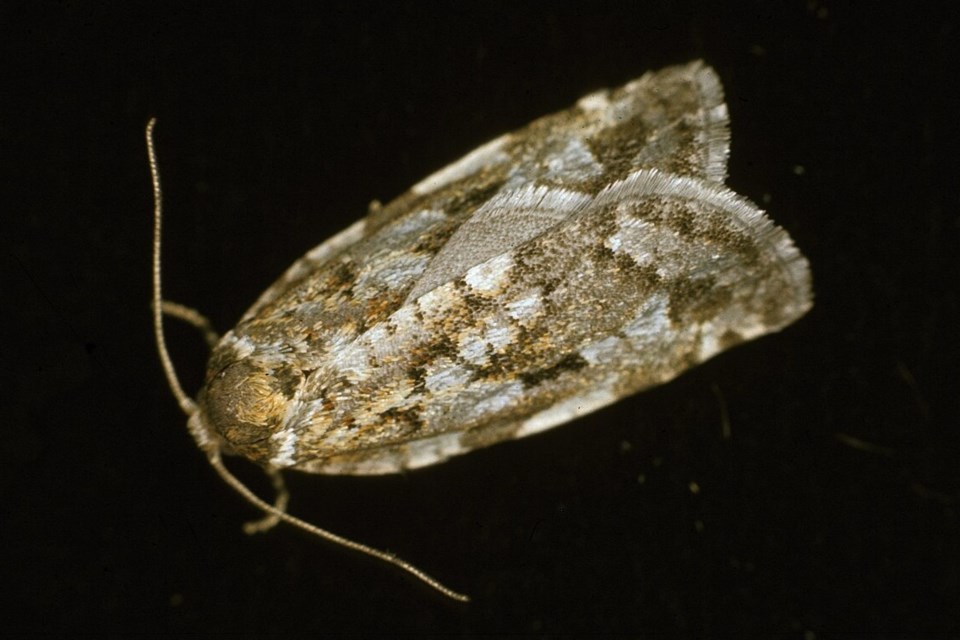Take a road trip across BC and chances are you will see our forests in freefall.
From Lilloet through to Whistler, I was shocked to see valleys of red, as a western spruce budworm, a type of moth, rips through the conifer forests of almost all species. Hemlock, Douglas Fir, spruce, and the true firs are all being impacted, on a massive, catastrophic level.
Unlike the Mountain Pine Beetle, which prioritized the old pine, the budworm seems to go for the younger trees. I saw entire plantations of young monocultures, the textbook product of modern forest management, with near complete infestation. The only trees that were still green was the cottonwoods and, ironically, the odd lodgepole pine tree.
I’m not sure how we will log ourselves out of this one.
It’s hard to say what the mortality will be. Hopefully a lot of them will recover next year. But lots will die, and it’s not just limited to the Duffy Lake Road. I’m hearing reports of massive outbreaks down the Fraser Canyon, and to the east towards Kamloops and Kelowna.
It’s probably just a matter of time before the budworm shows up again in Prince George. After all, we’ve spent hundreds of millions of dollars spraying our forests with herbicides and hitting them with brush saws to create perfect conditions of monocrop budworm food for these outbreaks to prosper in.
But the government put out a Forest Health Bulletin back in January letting us know it’s all under control, with our forests being sprayed with the indiscriminate moth and butterfly-killing BtK bacteria.
Contrary to the claims this is harmless, research shows these insecticidde treatments can knock back uncommon moth and butterfly species to the point they didn’t recover during the study period.
There is no mention of diversifying our forests away from monocrop conifer plantation forestry towards more deciduous diversity.
Like the BC Wildfire service, the Forest Health Team just responds to the problems in an isolated silo with the only tools they have: in the case of forest health, with their chemicals and biological agents.
They have no control over the monoculture-obsessed incompetence in the Office of the Chief Forester or 30-year old Forest Minister Ravi Parmar, who is apparently more interested in hard-hat photo-ops than showing the true leadership and knowledge needed to turn the boat around.
And recent research from the University of Guelph is showing just how wrong-headed our decades-old war on our broadleaf tree species has been.
We’ve known for decades a major natural predator of these budworms is parasitic wasps. When budworm attacks occur, these parasitic wasps can rapidly multiply. But they don’t come from thin air.
These wasps need to be hanging out in our forests on standby, and to do that, they need other things to eat when the budworms aren’t active. Forests with lots of deciduous trees, this report says, sustain more of these parasitic wasps, ready to multiply when the spruce budworm rears its head.
Structural diversity also seems to help wasps and other potential budworm predators maintain their populations. But to do that you need to start doing more selective logging, not clearcuts.
Our provincial forest health experts will strongly argue this Eastern and European research isn’t applicable to BC.
But in the absence of budworm research in Western Canada, it would be foolish to ignore the lessons that many researchers in Eastern Canada are discovering: monocrop conifer plantations improve budworm growth and worsen budworm predator populations.
You’d think the growing body of evidence showing that the war on deciduous is setting up our forests for these massive budworm attacks would convince Parmar of the immediate need to change our policies. You’d be wrong.
Not even new research showing how deciduous trees can impede fire more effectively than conifer regardless of how worse the fire weather gets, matters to these guys.
Our leadership will do whatever it takes to turn our province into a massive disease-ridden chemical-dependent firetrap conifer tree farm.
If that’s what it takes to benefit the billionaires and the big corporate interests, regardless of the public and environmental harm, that’s what is going to happen.
James Steidle is a Prince George writer.



